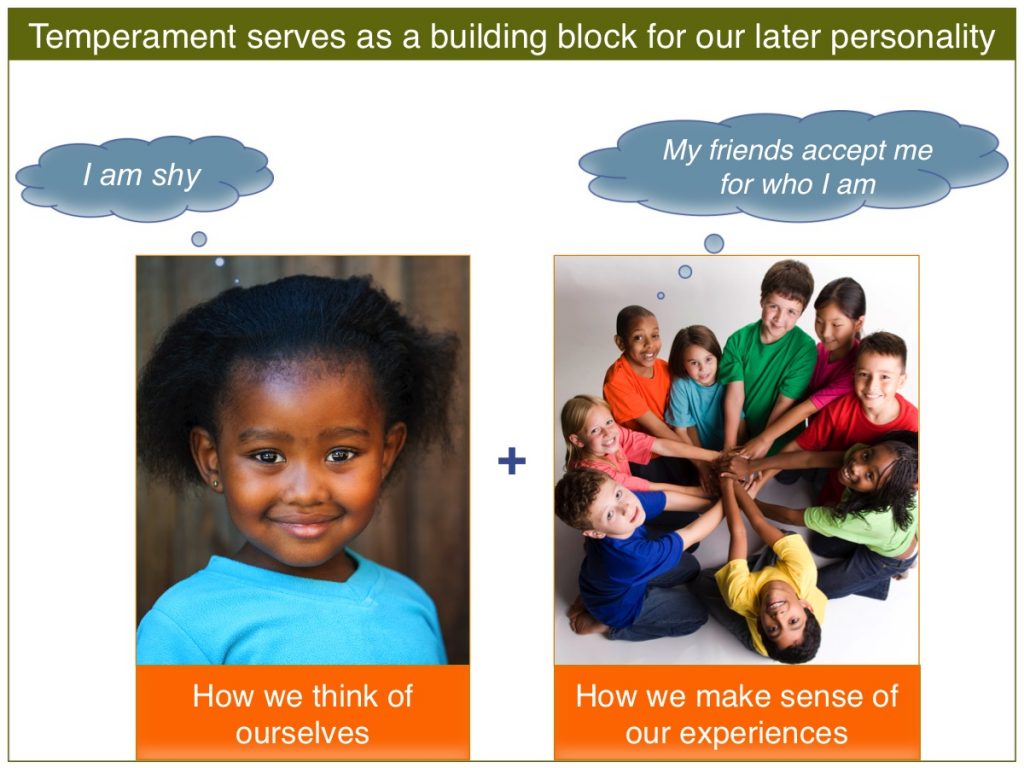
Temperament serves as a building block for our later personality. But personality is a broader set of features, not just our temperament. It also includes how we think of ourselves and how we make sense of our experiences. Temperament influences how well we do in school, our actions, and our emotional well-being. Think about how your temperament may influence different areas of your life.
Children’s activity level relates to later social behavior. Active preschoolers tend to be more sociable and energetic when they grow up. But they also have a greater risk of engaging in impulsive behavior and aggression. Less active preschoolers tend to be more shy and inhibited. They are often more self-conscious compared to their more active peers.
A child’s ability to regulate emotions can change how temperament influences his development. Picture a child who tends to be irritable. Good self-regulation skills can help the child improve his reaction to a situation. He can use his skills to focus on positive aspects of a situation. This, in turn, lowers his risk for anxiety and aggression. If the child is not as good at self-regulation, he can have trouble managing emotions. An irritable child with poor self-regulation skills may have aggression or conduct issues later.
A supportive environment can help children improve their self-regulation skills. Children can use these skills to change their reactions and avoid negative outcomes. Creating “goodness of fit” between child and environment is also important in temperament interventions.
-
- Anterior cingulate cortex
- part of the brain that helps control emotional impulses
- Dimension
- more or less of a behavior
- Goodness of fit
- occurs when your expectations are compatible with a child’s temperament
- Negative reactivity
- a tendency to react in a negative manner
- Positive reactivity
- a tendency to react in a positive manner
- Prefrontal cortex
- the decision-making area of the brain
- Self-regulation
- a child’s ability to concentrate, to manage emotions, and to control impulses
- Temperament
- how a person approaches the world